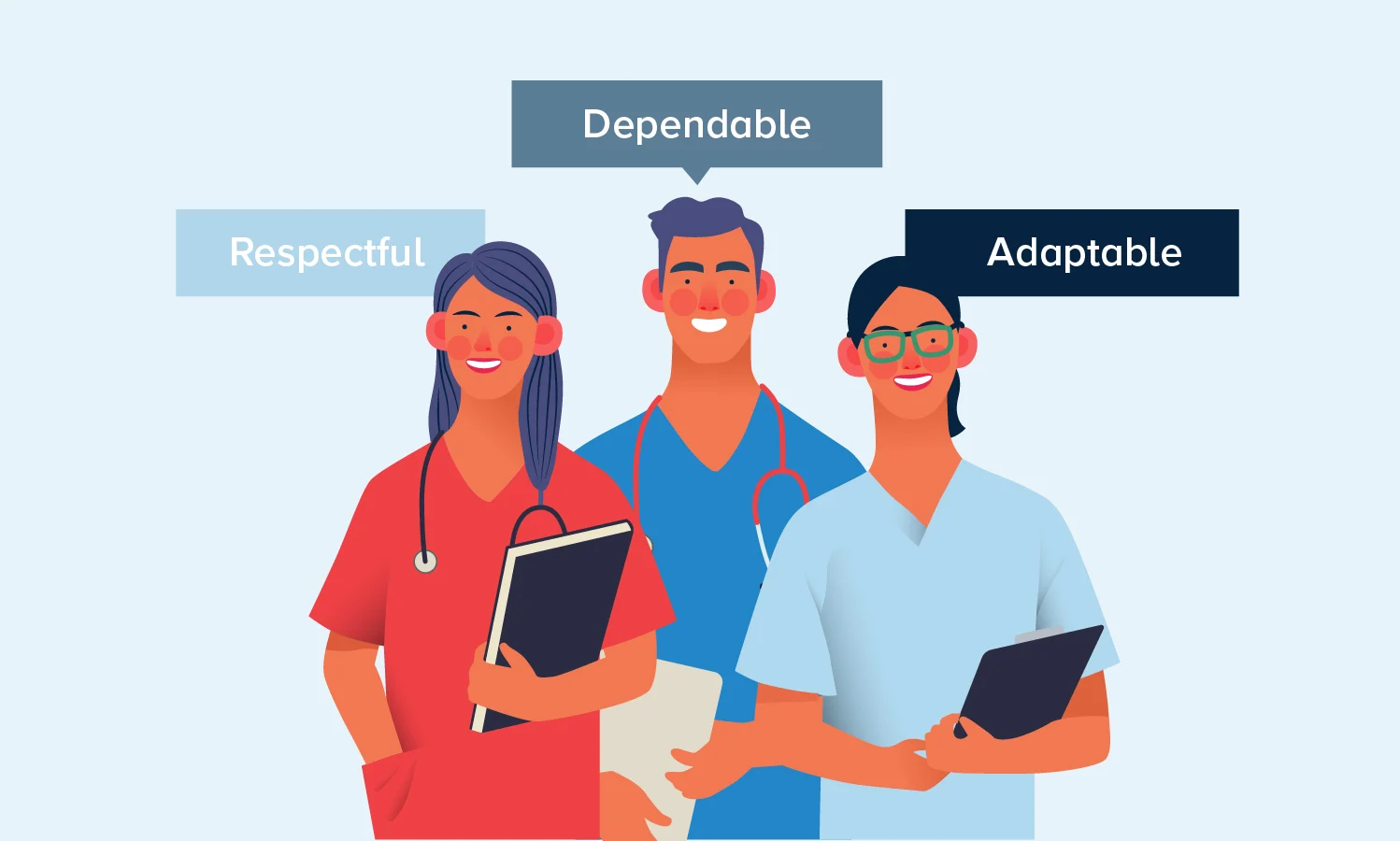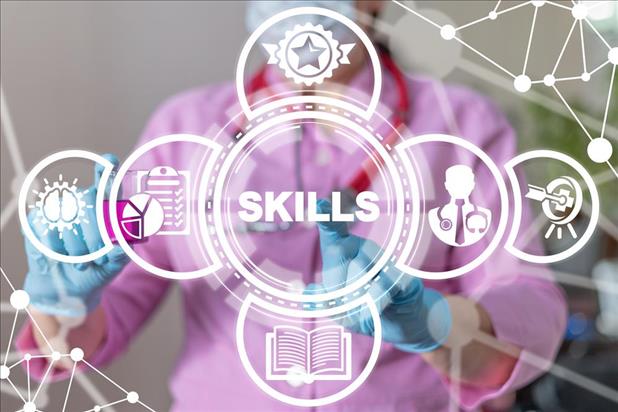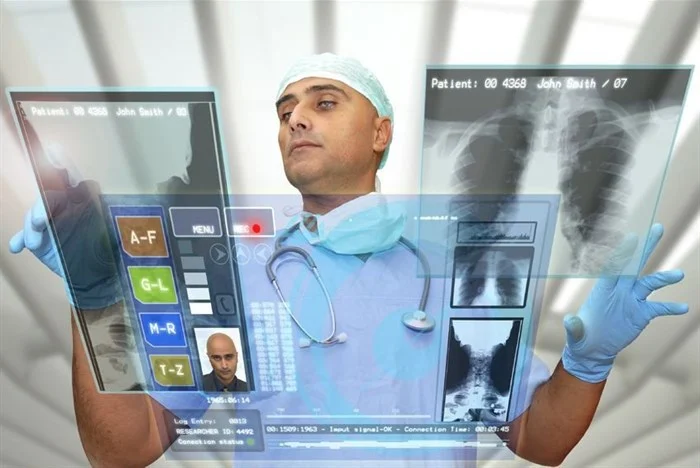Building Skills for Healthcare and Wellness: A Comprehensive Development Guide
Published by Al Mithaq Institute for Educational Services - Dubai
The Skills Gap in Modern Healthcare
Today's healthcare professionals face unprecedented challenges. The rapid advancement of medical technology, evolving patient expectations, and shifting healthcare models demand a broader and deeper skill set than ever before. This article explores the essential competencies required for success in modern healthcare and wellness fields, providing a roadmap for targeted professional development.
Core Clinical Competencies
Strong foundational clinical skills remain the bedrock of healthcare excellence. However, the definition of "clinical competence" continues to expand as healthcare evolves:
Evidence-Based Practice
The ability to find, evaluate, and apply current research evidence to clinical decision-making has become essential. This requires facility with medical databases, critical appraisal skills, and implementation science knowledge.
Interdisciplinary Collaboration
Complex care needs demand collaborative approaches. Healthcare professionals must develop skills in team communication, role appreciation, and integrated care planning to optimize patient outcomes.
Complex Case Management
With rising rates of chronic disease and multimorbidity, the ability to coordinate comprehensive care for patients with multiple, interacting conditions has become increasingly valuable.
Developing Digital Fluency
Digital technologies are transforming every aspect of healthcare delivery. Professionals who develop digital fluency gain significant advantages in efficiency, accuracy, and career advancement:
Healthcare Information Systems
Proficiency with electronic health records, clinical decision support systems, and healthcare analytics platforms is now a baseline expectation in most clinical settings.
Telehealth Competencies
The ability to conduct effective remote consultations, manage virtual care workflows, and utilize telehealth technologies has become essential, particularly since the global pandemic.
Emerging Technologies
Familiarity with AI-assisted diagnostics, wearable health monitors, and digital therapeutics positions healthcare professionals at the forefront of innovation.
Data Literacy
The ability to interpret healthcare data, understand basic analytics, and make data-informed decisions is increasingly valuable across all healthcare roles.
Human-Centered Skills
While technological capabilities expand, the human dimensions of healthcare remain paramount. These "soft skills" often differentiate exceptional practitioners from merely competent ones:
Advanced Communication
The ability to explain complex medical information clearly, listen actively, and communicate with empathy across diverse populations is essential in modern healthcare.
Emotional Intelligence
Self-awareness, empathy, relationship management, and stress resilience are crucial capabilities for navigating the emotional complexities of healthcare work.
Cultural Competence
As populations diversify, the ability to provide culturally sensitive care that respects different beliefs, preferences, and practices becomes increasingly important.
Integrating Wellness Principles
Healthcare professionals increasingly need skills to support holistic wellness, not just treat disease:
Preventive Approaches
Developing skills in risk assessment, behavior change coaching, and preventive interventions to address health issues before they escalate.
Lifestyle Medicine
Building expertise in evidence-based lifestyle interventions related to nutrition, physical activity, sleep, stress management, and social connection.
Mind-Body Approaches
Incorporating skills in mindfulness, stress reduction techniques, and cognitive-behavioral strategies to address the psychological dimensions of health.
Health Coaching
Developing capabilities to empower patients in self-management through motivational interviewing, goal setting, and accountability frameworks.
Leadership and Management Capabilities
As healthcare systems grow more complex, leadership skills become increasingly valuable at all career stages:
| Leadership Dimension | Key Skills | Application in Healthcare |
|---|---|---|
| Systems Thinking | Understanding complex interdependencies, anticipating consequences, identifying leverage points | Redesigning care pathways, addressing inefficiencies, implementing sustainable changes |
| Quality Improvement | Process analysis, PDSA cycles, performance measurement, change management | Reducing errors, improving outcomes, standardizing best practices, increasing efficiency |
| People Leadership | Team building, conflict resolution, coaching, delegation, motivation | Building cohesive healthcare teams, managing interprofessional dynamics, developing staff potential |
| Financial Acumen | Budget management, resource allocation, cost-benefit analysis | Making sound resource decisions, demonstrating value, sustainable program development |
Al Mithaq Institute's Skill-Building Programs
Al Mithaq Institute for Educational Services in Dubai offers comprehensive programs designed to develop the essential skills needed in modern healthcare and wellness:
Mental Health Diploma
Develop advanced skills in psychological assessment, therapeutic approaches, and mental health intervention strategies.
- Evidence-based therapeutic techniques
- Crisis intervention protocols
- Psychological assessment methods
- Mental health promotion strategies
Cognitive Behavioral Therapy (CBT)
Master practical CBT techniques for addressing various mental health conditions and supporting positive behavior change.
- Cognitive restructuring methods
- Behavioral activation techniques
- Exposure therapy approaches
- CBT for specific conditions
Hospital Administration
Develop the management and leadership competencies needed to excel in healthcare administration roles.
- Healthcare operations management
- Quality improvement systems
- Healthcare financial management
- Healthcare leadership strategies
Healthcare Administration
Build essential administrative capabilities for managing modern healthcare services effectively.
- Healthcare policy implementation
- Healthcare information systems
- Health service planning
- Patient experience optimization
Strategic Skill Development Approaches
Building healthcare skills requires intentional, strategic approaches to professional development:
Formal Education & Credentialing
Experiential Learning
Reflective Practice
Collaborative Learning
Creating Your Skill Development Plan
Effective skill building in healthcare requires a personalized approach. Consider these steps to create your development plan:
- Assess your current competencies against the requirements of your current role and future aspirations
- Identify priority skill gaps that will have the greatest impact on your effectiveness and advancement
- Select appropriate learning modalities that match your learning style and schedule constraints
- Create specific, measurable learning objectives with clear timelines
- Seek feedback and support from mentors, colleagues, and supervisors
- Schedule regular reflection on your progress and adjust your plan as needed
Remember that skill development is an ongoing journey, not a destination. The most successful healthcare professionals commit to continuous learning throughout their careers.
Frequently Asked Questions
Skills related to digital health technologies, data analytics, population health management, and integrated care coordination are projected to see substantial growth in demand. Additionally, capabilities in geriatric care, mental health, preventive approaches, and remote care delivery will be increasingly valued as population demographics shift and care models evolve. Healthcare professionals who develop competencies in emerging areas while maintaining strong foundational skills will be particularly well-positioned in the job market.
The most effective approach is to pursue integrated skill development that recognizes how technical and human dimensions work together in healthcare practice. For example, when learning a new digital health platform, focus not just on the technical operation but also on how to maintain empathic presence while using the technology with patients. Similarly, when developing communication skills, consider how they apply in technology-mediated contexts like telehealth. Look for learning opportunities that explicitly address both dimensions, and regularly reflect on how your technical and interpersonal skills complement each other.
For busy practitioners, efficiency in skill development is essential. Focus on approaches that integrate learning with practice, such as workplace-based projects that solve real problems while building new capabilities. Microlearning formats that deliver content in brief, focused segments can be fit into schedule gaps. Blended learning programs that combine online self-paced components with periodic intensive workshops often provide good flexibility. Additionally, consider collaborative learning within your organization where team members develop complementary skills and cross-train each other. Al Mithaq Institute offers flexible scheduling options and blended learning formats specifically designed for working healthcare professionals.







